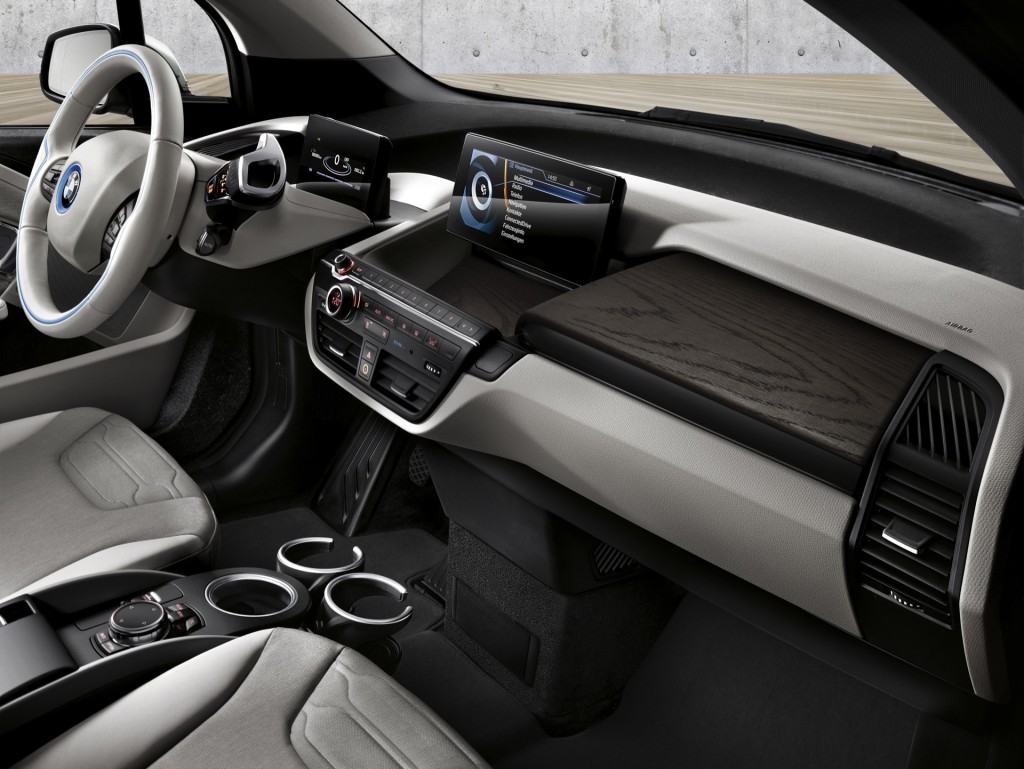The 2017 BMW i3 is the most significant update to the groundbreaking electric car since it went on sale in the U.S. back in May 2014.
Changes are headlined by a larger, 33-kilowatt-hour lithium-ion battery pack that increases range from 81 miles to 114 miles in the all-electric model.
However, until now, BMW had yet to release range estimates for the extended-range i3 REx model.
DON'T MISS: 2017 BMW i3: up to 114 miles of range from 50-percent battery increase
But it turns out that the 2017 i3 REx will have an electric range of 97 miles, plus an 83-mile range on gasoline, for a total range of 180 miles.
That information comes not from BMW or the U.S. Environmental Protection Agency, but from examination of a 2017 i3 REx window sticker on Inside EVs.
The window sticker also shows efficiency ratings of 35 mpg on gasoline and 111 MPGe on electric power.

2017 BMW i3
(Miles Per Gallon Equivalent, or MPGe, measures the distance a car can travel electrically on the same amount of energy as contained in 1 gallon of gasoline.)
The 2016 i3 REx was rated at 39 mpg and 117 MPGe, meaning that the 2017 version of the range-extended car trades some efficiency for its higher electric range.
The previous range ratings were 72 miles on electric power, 78 miles on gasoline, and 150 miles combined.
CHECK OUT: BMW i3 REx Electric Car: Why CA Set Range Requirements, Engine Limits
Despite its larger battery pack, the electric rating of the REx stays roughly at the same percentage of the battery-electric version's range as before.
The 2017 i3 REx has 85 percent of the battery range of the 2017 i3 all-electric version, compared to 88 percent in the original configuration.
As well as enlarging the battery pack, BMW also "unlocked" the REx's gas-tank capacity to the 2.4 gallons the i3 already has in Europe.

2017 BMW i3
Capacity was previously limited electronically to 1.9 gallons in the U.S.
The 0.65-liter two-cylinder gasoline range extender remains unchanged.
It's possible that BMW may have engineered the upgrades not just to increase range, but to also reduce the chance of drivers encountering the reduce-power mode that has been the source of heated debate among electric-car advocates.
MORE: BMW i3 REx range extender: owner assesses pros and cons of limited-power engine
This occurs under a very specific set of circumstances, when the range extender can't provide enough current to the battery and motor to maintain the car's speed under high loads.
That occasional power loss led some owners to file a class-action lawsuit, in which they alleged that cars slow to 45 mph on the highway without warning, creating a safety hazard for drivers and passengers.
BMW doesn't comment on the sales split between battery-electric and range-extended versions of the i3, but when owner reports were tabulated a year after the car went on sale, the i3 REx made up slightly more than half of the total.
_______________________________________________












